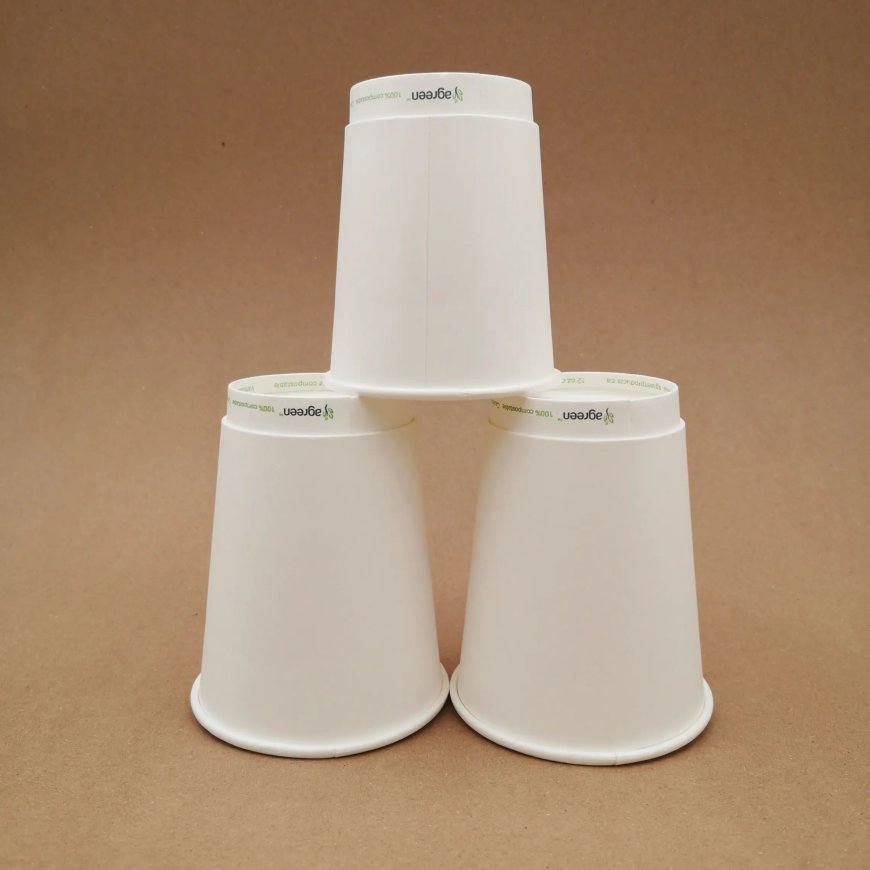Can Your Coffee Cup Really Be Compostable? Understanding the Labels

Coffee cups are part of our daily lives. But as sustainability becomes more important, many of us are asking, "Can your coffee cup really be compostable?" With labels like "compostable" popping up everywhere, it’s time to dig deeper into what that means.
What is a Compostable Coffee Cup?
A compostable coffee cup is designed to break down into organic material when disposed of properly. Unlike regular cups, which often include plastic linings that make them tough to recycle, compostable cups are made from plant-based materials. This means they can decompose in the right conditions, leaving behind no harmful waste. However, not every cup labeled "compostable" can simply be thrown into your backyard compost bin. There's more to it than that.
Industrial Composting vs. Home Composting
Compostable coffee cups generally require industrial composting facilities to break down properly. These facilities maintain specific temperatures and moisture levels that speed up decomposition. Without these conditions, even compostable materials may take years to break down. So, if your local waste management doesn't offer composting, the compostable coffee cups you use may not fulfill their eco-friendly promise.
On the other hand, some products are labeled as "home compostable." These cups are designed to break down in your backyard compost bin. It’s important to know the difference so that your efforts to be green don’t go to waste. Always check the fine print on the packaging to ensure you’re disposing of your cup the right way.
What Labels Should You Look For?
Not all "compostable" labels are created equal. Look for trusted certifications to ensure your compostable coffee cup is the real deal. Some of the most common and reliable labels include the "BPI Certified Compostable" logo. This means the cup has been tested and approved to decompose in industrial composting conditions.
Another label to watch for is "home compostable." This certification is trickier to find, but it guarantees the cup can break down in your garden compost bin. Paying attention to these labels is essential to avoid being misled by marketing.
Are Compostable Cups Really Better for the Environment?
In theory, compostable coffee cups sound perfect for reducing waste. But there’s a catch. If you’re not composting your cup properly, it might end up in a landfill, where it won’t break down due to the lack of oxygen and moisture. In landfills, even compostable products can release methane, a powerful greenhouse gas.
The solution? Check if your city has the infrastructure to handle compostable waste. If they don’t, consider switching to a reusable cup instead. That way, you’re making the most eco-friendly choice, no matter where you are.
Tips for Using Compostable Coffee Cups Responsibly
-
Know Your Local Composting Options – Before you start using compostable coffee cups, research whether your city offers composting services. Otherwise, your effort might go to waste (literally).
-
Look for Proper Labels – Always check for certifications to ensure you use a genuinely compostable cup. The right label can make all the difference.
-
Educate Yourself – Take a moment to understand the materials in your cup. Knowing how to dispose of it correctly is key to making a positive environmental impact.
-
When in Doubt, Go Reusable – If composting isn't available in your area, a reusable cup might be a better option. It's one simple change that can help reduce waste over time.
The Last WORDS!
Not all compostable coffee cups are created equal, and understanding the labels is crucial. By knowing what to look for and how to dispose of your cup responsibly, you can do your part to reduce waste and help the environment. So, the next time you grab your coffee, take a moment to consider whether your cup is truly compostable. It's a small step, but when we all take it, the impact can be huge!

 agreenproducts
agreenproducts